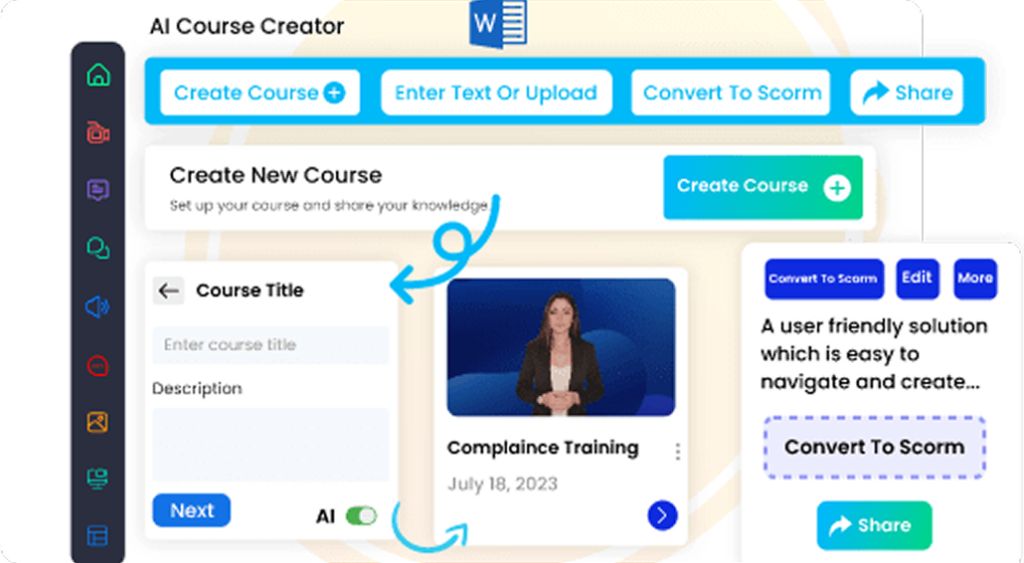What Is Retail Sales Training?
Retail sales training involves providing employees with the knowledge and skills needed to engage with customers effectively, promote products, and close sales. This training typically covers various aspects of the retail sales process, from understanding the products or services being sold to customer service techniques, communication strategies, and overcoming objections.
Retail sales training can be delivered through various methods, including in-person training, online learning, role-playing, and shadowing experienced salespeople. The goal is to prepare employees to confidently handle sales conversations, build strong customer relationships, and meet sales targets.
Effective retail sales training helps employees not only increase sales but also develop soft skills such as communication, empathy, and problem-solving, all of which are essential for providing excellent customer service.
Benefits of Retail Sales Training for Employees
1. Improved Sales Performance
One of the most significant benefits of retail sales training for employees is improved sales performance. Sales training equips employees with the skills to engage customers more effectively, understand their needs, and recommend the right products. This leads to higher conversion rates, increased average transaction values, and overall improved sales outcomes.
2. Enhanced Customer Satisfaction
Customers are more likely to have a positive experience when they interact with knowledgeable and well-trained salespeople. Retail sales training teaches employees how to handle customer inquiries, address concerns, and offer personalized recommendations. As a result, customer satisfaction levels rise, leading to repeat business and positive word-of-mouth referrals.
3. Boosted Employee Confidence
Retail sales training gives employees the confidence they need to approach customers, handle objections, and close sales. By gaining product knowledge and learning proven sales techniques, employees are more likely to feel capable in their roles. Confidence translates into better interactions with customers and higher sales success rates.
4. Reduced Employee Turnover
Investing in retail sales training shows employees that the company values their development. When employees feel supported and empowered to succeed in their roles, they are more likely to stay with the company long-term. This reduces turnover rates and the associated costs of recruitment and training new hires.
5. Increased Employee Motivation
Training programs that are well-structured and engaging motivate employees to improve their performance. Retail sales training often includes incentives or performance metrics that encourage employees to hit targets and achieve personal goals. This motivation fosters a competitive, high-performance culture within the team.
Best Practices for Retail Sales Training
1. Tailor Training to Specific Roles
Not all retail employees have the same responsibilities, so it’s essential to customize training based on the specific roles within the team. For instance, cashiers may need training on customer service and handling returns, while floor associates may require more in-depth training on upselling and product knowledge.
2. Use Real-Life Scenarios and Role-Playing
Incorporating role-playing exercises and real-life scenarios into retail sales training helps employees practice handling actual customer interactions. By simulating common retail situations, employees can develop problem-solving skills and learn how to handle various challenges they may face on the sales floor.
3. Provide Ongoing Training and Development
Retail selling skills training should be an ongoing process. Offering periodic refresher courses, advanced training, and coaching ensures that employees stay up-to-date on the latest product offerings, sales techniques, and customer service strategies. Continuous learning helps employees feel valued and improves their performance over time.
4. Leverage Technology for Training
Online courses, mobile apps, and e-learning platforms can enhance the accessibility and flexibility of retail sales training. Employees can access training materials at their convenience, allowing them to learn at their own pace. Incorporating technology also helps track progress and identify areas for improvement.
5. Focus on Product Knowledge and Customer Engagement
Effective retail sales training should emphasize product knowledge and the importance of customer engagement. Employees need to understand the features, benefits, and selling points of the products they’re selling to effectively communicate these details to customers. Additionally, training should focus on developing interpersonal skills to foster genuine customer relationships.
Learning Built Around Your Goals.
Discover how our courses can align with your training goals and drive real results.
How CogniSpark AI Enhances Retail Sales Training
CogniSpark AI transforms Retail Sales Training into an interactive, performance-driven experience. By using real-time simulations and AI-guided feedback, it helps retail staff master key skills like product knowledge, upselling techniques, customer engagement, and handling objections effectively. With built-in AI Tutors, learners receive instant coaching tailored to their responses—ensuring practical learning that sticks. CogniSpark’s authoring tool allows businesses to create and update modules quickly, keeping training aligned with changing products and customer expectations. Fully LMS-compatible, it enables progress tracking, personalized learning paths, and on-demand microlearning. Whether training new hires or refreshing veteran staff, CogniSpark AI empowers retail teams to boost conversions, deliver memorable service, and drive store success.
Conclusion
Retail sales training is an essential component of any retail business strategy. By investing in retail selling skills training for employees, businesses can ensure that their sales teams are equipped with the knowledge, tools, and confidence to succeed. The benefits of retail sales training—such as improved sales performance, customer satisfaction, and employee retention—make it a wise investment that pays off in the long run.
By following best practices and tailoring training programs to meet the specific needs of your retail team, you can create a culture of success and drive meaningful business results. Ensure that your training programs are interactive, engaging, and ongoing to foster continuous improvement and maintain a competitive edge in the retail industry.
Ready to Boost Your Retail Sales? Get in Touch!
If you’re looking to take your retail sales training to the next level, we’re here to help. Contact us today to learn more about our customizable training solutions designed to help your employees improve their retail selling skills.
Access 100+ fully editable, SCORM-compatible courses featuring an integrated AI Tutor and an in-built authoring tool. Seamlessly compatible with any LMS, these courses are designed to elevate your training programs.
Explore Our eLearning Course Catalog






















